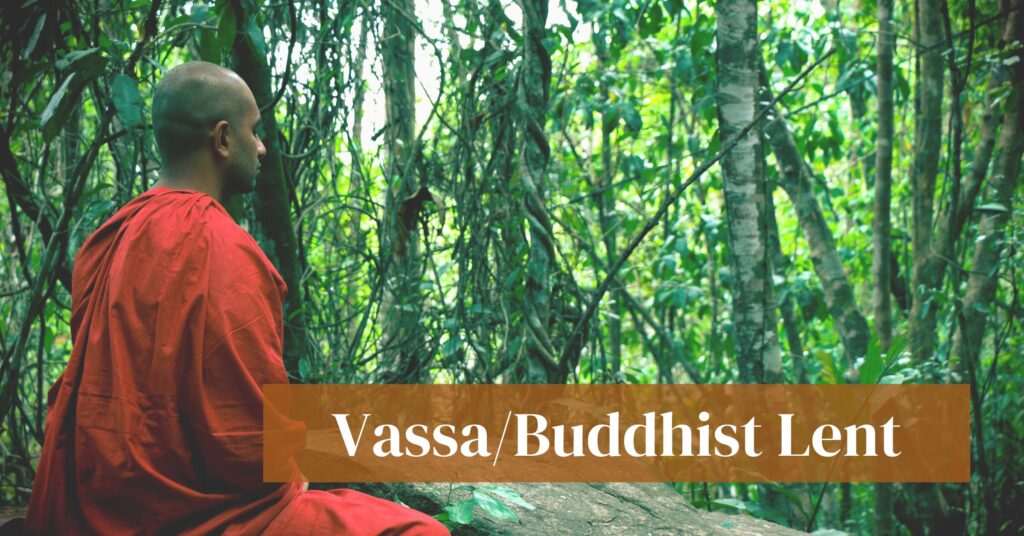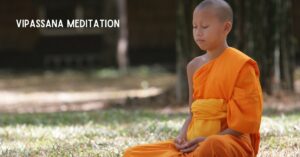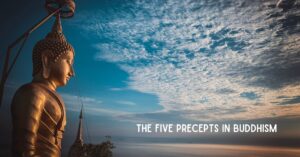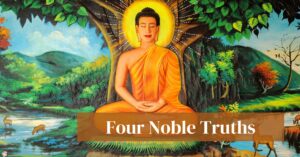The Vassa, or the Buddhist Lent, is an important observance in Theravada Buddhism. It is considered a time of spiritual growth and reflection for both monks and lay followers. The Vassa period typically lasts for three months. It begins on the first full moon day of the lunar calendar’s 8th month, which usually falls in July or August in the Western calendar.
During the Vassa period, monks are expected to remain in one place, usually a monastery or temple, for the rainy season. The Vassa is seen as an opportunity for spiritual reflection and growth and a way to protect the monk’s robes and other possessions from the rain. Monks are also expected to observe specific rules and rituals, such as refraining from traveling, except in certain circumstances. They also spend much time meditating, studying the scriptures, and participating in religious ceremonies and rituals.
For lay followers, the Vassa is an opportunity to support the monastic community by providing food, clothing, and other necessities. They are also encouraged to take the chance to reflect on their spiritual practice and make efforts to improve themselves.
The Vassa period was also a time of heightened religious activity, with many Buddhist temples and monasteries hosting ceremonies and rituals throughout the three months. Many lay followers also made a special effort to visit temples and monasteries during this time to participate in these ceremonies and to make offerings to the monastic community.
The end of the Vassa is marked by the “Kathina” festival, which is a time for lay followers to make offerings of new robes and other necessities to the monks. This festival is an important way for lay followers to express their gratitude and support for the monastic community. It is seen as a way to accumulate merit and cultivate generosity.
It is also worth noting that the Vassa period is observed in Theravada Buddhism and some Mahayana and Vajrayana traditions. However, the customs and practices may vary.






